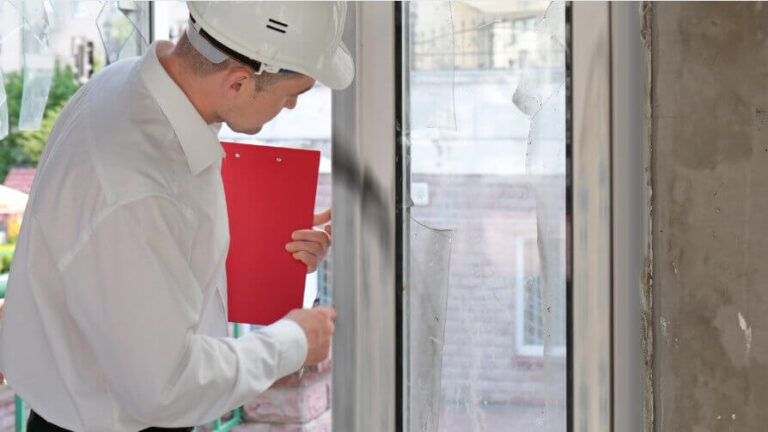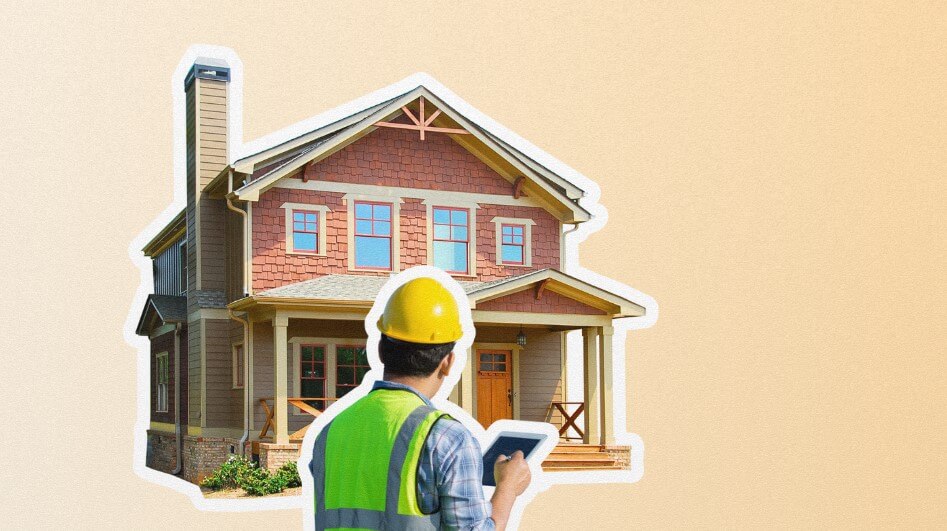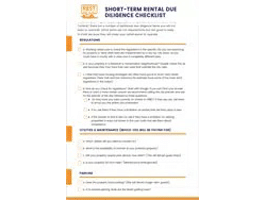As the housing market surges with opportunities, savvy investors know that a prime location is just the tip of the iceberg. Looking into the structural and functional aspects of a property can be the difference between a wise investment and a costly mistake.
With property inspection tips at your fingertips, you can make decisions that not only boost profitability but also ensure the safety and satisfaction of your guests. Knowing the essentials of property inspections in the world of short-term rentals can save you time, money, and potential headaches.
Why a Property Inspection is Crucial
Safety Concerns
Ensuring the safety of guests is a primary reason for conducting a thorough property inspection. Without a comprehensive evaluation, we cannot accurately determine the condition of a property.
From potential structural issues to electrical faults, a detailed inspection is essential in identifying potential hazards that might otherwise go unnoticed. We highly recommend enlisting the services of a professional inspector to conduct this vital assessment.
Their expertise will provide peace of mind, knowing that the property meets all necessary safety standards and is free from hidden dangers that could pose a risk to occupants.
Financial Implications
Unidentified problems can lead to costly repairs in the future. By following expert property inspection tips, you can avoid unexpected expenses down the line.
Download The 16 Page Guide to Acquiring The Right Property For STR Returns
The type of property and its location can make or break your investment.
Don’t “bet the house” on the wrong property.
Find out how to determine the right markets and properties for better, safer returns…


Key Property Inspection Tips
Roofing
A roof in good condition is crucial to ensuring guests have a comfortable and hassle-free stay. Imagine the negative impact on your guest’s experience if they were awakened by the sound of dripping water during a rainstorm, only to find water seeping through the ceiling. This could lead to negative reviews and potential loss of future bookings.
When inspecting a property, it is essential to assess the condition of the roof.
You should know the age of the roof and how much life it has left in it. If your general property inspector cannot access the roof, we recommend getting a separate roof inspection done by a professional roofer. A roof is a significant expense, and any issues can have a negative impact on your purchase.
Some insurance companies may not even insure the roof if it is past a certain age or if it is in a specific area or condition.
In addition to checking for leaks, it is important to inspect the shingles, flashing, and chimneys to ensure everything is in good working order. Regular maintenance and timely repairs can prevent minor issues from becoming major problems in the future. By taking these steps, you can protect your investment and provide a safe and comfortable environment for your guests.
Foundation
A misaligned door or visible wall cracks can raise concerns about the property’s safety among guests. The foundation is crucial for the overall structural integrity of your rental property. Addressing even minor issues promptly can prevent potential hazards and ensure guests feel secure during their stay. This can include things like:
- Horizontal cracks
- Water seepage
- Uneven or sloping floors inside the home
Plumbing
A clogged sink or fluctuating water pressure can be a major inconvenience for guests. Ensuring a functional plumbing system is vital for short-term rentals. Regular inspections can help identify potential problems, ensuring guests have uninterrupted access to clean water and efficient waste disposal.
Make sure to check for:
- Slow drains
- Discolored water
- Persistent sewer odor
Electrical Systems
Guests expect a seamless experience, and electrical issues can disrupt their stay. From flickering lights to power outages, electrical problems can pose safety risks and lead to negative feedback. Regular checks ensure the property’s electrical systems are safe and up to standard.
Potential issues to look out for:
- Buzzing sounds from outlets
- Burn marks near sockets
- Circuit breakers that trip frequently
HVAC Systems
A malfunctioning HVAC system can quickly turn a guest’s stay from pleasant to problematic. Whether it’s a hot summer or a chilly winter, guests rely on the HVAC system for comfort. Regular maintenance ensures the system runs efficiently, providing a comfortable environment for every guest.
When it comes to issues with the HVAC system, such as uneven heating or cooling, strange noises from the system, or persistent odors when running, it is crucial to consult a professional. They will be able to accurately diagnose the problem and recommend the appropriate course of action.
This may include checking for duct leaks or blockages, servicing the system or replacing worn-out parts, and cleaning or replacing filters and inspecting for mold. By addressing these issues promptly and professionally, you can ensure that your guests have a comfortable and enjoyable stay.
Disclaimer: For any of the issues listed above, we highly recommend consulting a professional to assess the situation and provide the appropriate solution.
You might like: Expert Tips to Cut Airbnb Expenses and Boost Profits
Common Mistakes to Avoid

While it’s essential to know what to look for, it’s equally crucial to understand common pitfalls. Not hiring a professional, skipping sections of the property, or not following up on identified issues are mistakes that can cost you in the long run. Here’s a list of common mistakes to avoid during property inspections
Not hiring a professional
While it might seem cost-effective to do it yourself, a professional inspector has the expertise to identify issues you might overlook. In addition to providing a thorough assessment of the property, obtaining professional inspections can also serve as a valuable tool during the negotiation process.
For instance, if a structural engineer identifies a significant issue, such as a crack in the floor, and provides a report estimating the repair cost to be $10,000, this information can be used to renegotiate the property price with the seller.
By presenting the report and the associated costs, you can make a strong case for why the price should be adjusted, ultimately saving you money in the long run.
Skipping sections
Every part of the property, from the attic to the basement, needs inspection. Overlooking any section can lead to missed issues.
Ignoring minor issues
Small problems can become significant if left unaddressed. Always take note and consider fixing even minor issues.
Not following up
Once an issue is identified, ensure you follow up on repairs or further inspections.
Not checking permits
Always ensure that any additions or major changes to the property had the proper permits.
Overlooking external structures
Garages, sheds, and other outbuildings should also be inspected for potential issues.
Relying solely on visual inspection
Some issues, like mold or pests, might not be immediately visible. Always consider additional tests if there’s a suspicion.
The normal home inspection is what most everyone does, but there are other inspections too. For example, we do a termite inspection, and we do a sewer inspection where we actually have the video cameras go down the drain lines. We also do an inspection for any area of the property we think we need additional information, or we may have a large financial expense in the future.
Tim Hubbard
Not checking appliances
Ensure all appliances in the property are functioning correctly and are in good condition.
Ignoring the property's age
Older properties might have issues related to outdated construction methods or materials. Always consider the property’s age during the inspection.
Not reviewing the inspector's report
Always review the detailed report provided by the inspector. It will give you a clear understanding of the property’s condition.
Failing to attend the inspection
Being present during the inspection allows you to ask questions and get a firsthand understanding of potential issues.
If there are tenants in the property, you can chat with them and see how they like the property, and if they’ve had any major issues pop up while they’ve lived there. A lot of the times sellers don’t want to disclose that information, so if you have a chance to talk to them, don’t miss out on it.
Not considering future maintenance
While not necessarily a part of the inspection, understanding future maintenance requirements can give you a clearer picture of potential future expenses.
A checklist for property inspection
If you are planning on acquiring property to operate as a short-term rental (Airbnb) there are a number of additional due diligence items you will not want to overlook! Some items are not requirements but are good to keep in mind because they will make your rental easier to operate. Download this sheet to easily keep track of all the things you NEED to accomplish!
Final thoughts
Each component—from the roof to the HVAC system—holds its own set of challenges and potential pitfalls. By paying attention to these property inspection tips, you’re equipping yourself with the tools to make informed decisions, ensuring that your investment stands the test of time.
It’s about safeguarding your future, one inspection at a time. Remember, a well-inspected property is testament to your diligence and commitment to excellence.
Faq
It’s advisable to get a property inspection before purchasing a property and then periodically, especially if you notice any issues.
Yes, you can conduct a basic property inspection yourself, especially if you’re familiar with the property and its systems.
For a more comprehensive inspection, especially concerning structural, electrical, and plumbing systems, it’s advisable to hire a professional. They’ll have the expertise and tools to identify potential issues that might be overlooked by an untrained eye.
If you discover issues during the inspection, prioritize them based on their severity and potential impact on the guest experience.
Critical issues that affect safety or the functionality of the property should be addressed immediately.
For less urgent matters, schedule repairs during periods when the property isn’t booked. Always inform guests in advance if there will be any disruptions during their stay due to repairs.
The duration of a property inspection can vary based on the size of the property and the depth of the inspection. A basic inspection for a standard-sized home or apartment might take 2-3 hours.
However, a comprehensive inspection conducted by a professional could take 4-6 hours or even longer for larger properties.
The cost of a property inspection depends on the region, the size of the property, and the depth of the inspection. Basic inspections might cost a few hundred dollars, while comprehensive inspections for larger properties can run into the higher hundreds or even over a thousand dollars.
While there’s an upfront cost, regular inspections can save money in the long run by catching potential issues before they become major problems.










